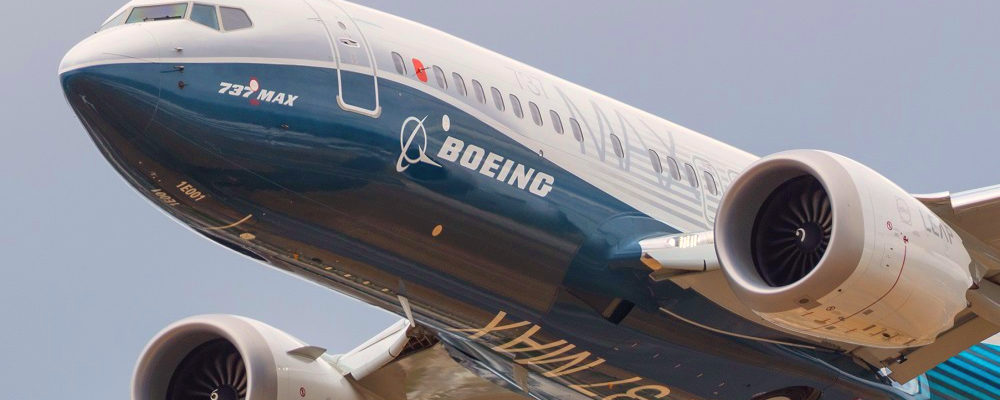Boeing bosses have been on a charm offensive to reassure the aviation industry that it is working hard to guarantee safety in its product lines. Speaking to the media on 16 June in the run up to the Paris Air Show, [1] the company’s CEO Dennis Muilenburg conceded that Boeing had made errors in its handling of a companywide crisis spawned by fatal crashes involving two of its 737 Max passenger jets.
Since the second crash, which occurred in Ethiopia in March this year, industry regulators around the world have grounded the Max, which Boeing has continued to manufacture at a rate of 42 units per month, despite the suspension of customer orders. [2] In parallel, the US Federal Aviation Administration (FAA) has censured Boeing for its failure to reveal that a safety indicator in the jet’s cockpit had been malfunctioning.
The company had failed to reveal the flaw for more than a year.
In his media statement, Muilenburg admitted that Boeing’s communication to stakeholders and the public on the various factors behind the crashes “was not consistent. And that’s unacceptable”.
Quoted by the Associated Press, Allied Pilots Association spokesman Dennis Tajer – himself a pilot – said that Boeing’s garbled and evasive public response to the crashes had “created a massive headwind to rebuilding trust”. Meanwhile, a 17 June Business Insider piece reported Muilenburg’s colleague Stan Deal – president and CEO of Boeing Global Services – as saying that the company will take the lessons from its bug fixes on the Max and apply them wherever possible to another troubled model, the 777x. [3]
However, this morning it emerged that FAA tests had uncovered another technical flaw in the Max that is likely to push back test flights and cause further delays to its return to commercial service. [4]
In January, an analysis of 7,000 businesses for the Accenture Strategy Competitive Agility Index revealed that 54% of them had suffered a material drop in trust over the previous two-and-a-half years equating to a two-point drop on the Index – or, in financial terms, a 5.8% slump in revenue growth. [5]
In a 16 June Forbes interview, Tinder CMO Jenny Campbell notes that her firm is particularly motivated by trust and authenticity, and says: “I think trust is a tricky thing. Once you break it with the consumer, it's hard to get it back. You see this now with Facebook [following its scandals over] data privacy. Anytime they announce anything, whether it’s a good thing or a bad thing, there’s this increased scepticism wondering what their motive is, and why they’re doing something. That increased consumer scepticism is good.” [6]
All of which presents bosses with one of the toughest leadership challenges: how can firms that have lost trust among their stakeholders and customers claw back that valuable asset?
Institute of Leadership & Management head of research, policy and standards Kate Cooper says: “Any route towards a position of diminished trust is sharp and swift – but it’s a much longer road back when you’re trying to rebuild what you’ve lost. The most effective way to navigate that difficult, uphill journey is to ensure that, without exception, your stated aims flourish with absolute clarity in your actions.
“Whether your intention is to behave with integrity, be mindful of all your stakeholders, exercise vigilance over your supply chains or implement high standards of health and safety – or, even better, a combination of all those things – it must be apparent to even the most casual observer that the message is turning into substance. This is where the more responsible PR agencies – by which I mean firms that describe themselves as ethical, or work only with ethically minded companies – will be useful allies. They will help you find outlets where you can talk about what you are going to do, demonstrate that you have done it and explain how you are going to meet your next goal(s) in order to regain public trust.”
She adds: “No aspect of your operations must be exempt. When you’re on this hard road back to being trusted once more, it’s vital not to gloss over small areas of the business and think they don’t matter. Ethical behaviour must permeate the entire organisation. Trust can be rebuilt, as can any relationship, because it’s all about the sentiment that lies between people – for example, between the users of Facebook and the organisation itself. Those relations can be restored, and time is a great healer.
“But matching actions to words has to be your day-in, day-out, relentless mission – even during times when you’re not under intense media scrutiny.”
For further insights on the themes raised in this blog, check out the Institute’s resources on building trust
Source refs: [1] [2] [3] [4] [5] [6]
Image of Boeing 737 Max jet courtesy of Andreas Zeitler, via Shutterstock
Like what you've read? Membership gives you more. Become a member

